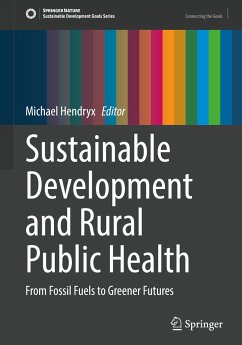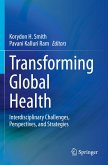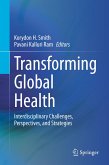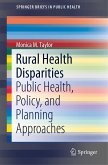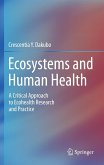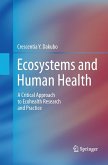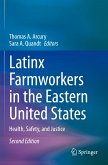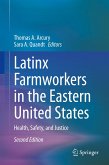This book offers strategies and solutions for rural communities dependent on fossil fuel economies to enable them to transition to sustainable development.
The move to renewable energy development and use is gaining global traction and will inevitably become standard practice in the coming years, and yet vulnerable communities around the world remain dependent on finite resource extraction for local economic activity. What will happen to these communities as the fossil fuel era fades away? Dependence on declining resource extraction economies arises from entrenched short-term interests in political and corporate worlds, and in the knowledge, skills and opportunities that local populations have at their disposal.
The edited volume takes a public health perspective by showing how dependence on fossil fuel extraction and processing economies creates not only environmental and economic problems but also public health disparities. More importantly, rather than documentation of problems and obstacles, this book focuses primarily on solutions, on real examples happening right now in communities around the world to take charge of their futures. A series of case studies provide examples of local efforts underway in these communities to create sustainable economic alternatives to fossil fuel dependence. The final section of the volume describes theory-based and empirically grounded development priorities that are needed to make transitions achievable and long-lasting, including improvements in adolescent health and well-being, regenerative development, sustainable food systems, adult education, and community-based leadership. Finally, case studies and development priorities are integrated within a new rural development framework to guide other communities in their own transition efforts. Although the challenges are daunting, the book is ultimately optimistic and forward-looking.
Sustainable Development and Rural Public Health: From FossilFuels to Greener Futures is essential reading for public health practitioners and researchers, social justice advocates, and students in sustainability studies, environmental justice and related areas. Rural health professionals, community leaders, environmental planners, policy makers, industry leaders, and entrepreneurs also will find this resource useful for their work.
The move to renewable energy development and use is gaining global traction and will inevitably become standard practice in the coming years, and yet vulnerable communities around the world remain dependent on finite resource extraction for local economic activity. What will happen to these communities as the fossil fuel era fades away? Dependence on declining resource extraction economies arises from entrenched short-term interests in political and corporate worlds, and in the knowledge, skills and opportunities that local populations have at their disposal.
The edited volume takes a public health perspective by showing how dependence on fossil fuel extraction and processing economies creates not only environmental and economic problems but also public health disparities. More importantly, rather than documentation of problems and obstacles, this book focuses primarily on solutions, on real examples happening right now in communities around the world to take charge of their futures. A series of case studies provide examples of local efforts underway in these communities to create sustainable economic alternatives to fossil fuel dependence. The final section of the volume describes theory-based and empirically grounded development priorities that are needed to make transitions achievable and long-lasting, including improvements in adolescent health and well-being, regenerative development, sustainable food systems, adult education, and community-based leadership. Finally, case studies and development priorities are integrated within a new rural development framework to guide other communities in their own transition efforts. Although the challenges are daunting, the book is ultimately optimistic and forward-looking.
Sustainable Development and Rural Public Health: From FossilFuels to Greener Futures is essential reading for public health practitioners and researchers, social justice advocates, and students in sustainability studies, environmental justice and related areas. Rural health professionals, community leaders, environmental planners, policy makers, industry leaders, and entrepreneurs also will find this resource useful for their work.

